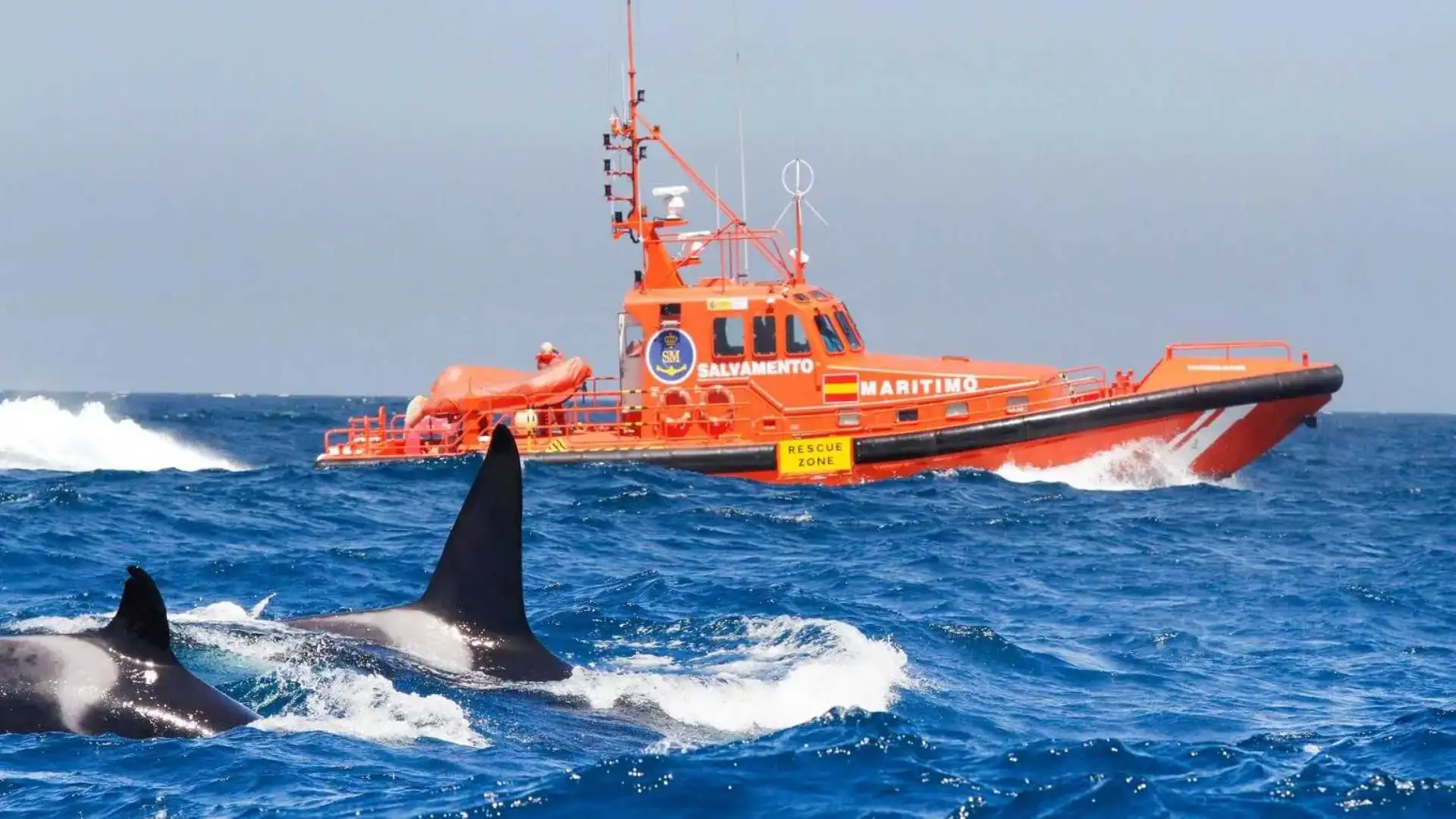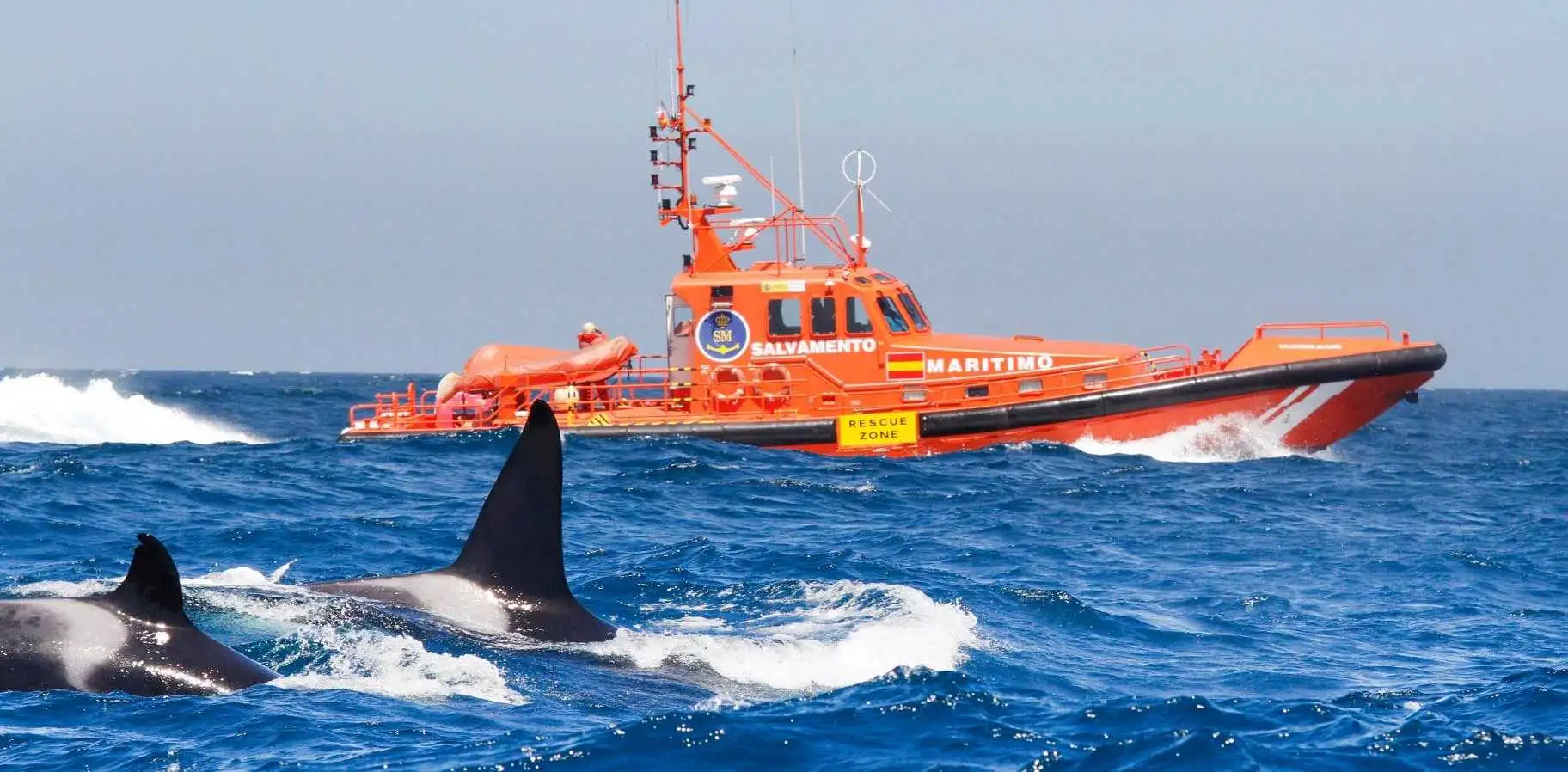
The report of the International Whaling Commission
The report of the International Whaling Commission

The International Whaling Commission has taken letters on the matter and has also begun to investigate the reasons for this behavior... the conclusion: they are not deliberate attacks by the orcas, but a simple game (Photo Salvamento Marítimo)
In recent years the interactions of the orcas with the nautical-sports fleet have been particularly high... both on the coast of Galicia, and in the Strait of Gibraltar... and even though there has been no need to regret either accidents with injuries, or damage outside the normal... the fact is that the avalanche at times of these contacts with the orcas has led to fear in the world of nautical tourism, and situations that have not been very serious, without leading to the amateur sailors and the same professionals, to some concern for specific situations that have occurred...
That is why the International Whaling Commission, through a specific working group and on behalf of the governments of Spain and Portugal, has taken up letters on the matter, and has issued a very interesting report (of which we included a link, so that the stakeholders can discuss this matter, the official position of this official international commission).
The conclusion of the experts of this group is that the interactions in the Iberian Peninsula between orcas and ships are not aggressive. They have more elements like a play or socialization behavior than an assault... says this study, which adds: The use of terms as an attack to describe these acts is therefore inappropriate, misleading and must cease. The report admits that, despite this, the behaviour of these cetaceans causes fear to the sailors and ends up causing real damage to the ships, and in some cases they may sink them. It therefore considers it imperative to provide timely advice to the navigators "to minimize or avoid these impacts, while ensuring the well-being of the orcas.
Scientists have already discovered some time ago that most orcas that interact with ships are young specimens of a group of approximately 15 individuals, sometimes called 'Gladys'. They approach the ships cautiously, apparently with the aim of hitting the rudders with their head and snout. But even as young animals, their large size, between 3 and 5 meters long, makes the rudders often damaged or even destroyed, explained Alex Zerbini, Chairman of the scientific committee of the International Whaling Commission.
In any case, the International Whaling Commission recommends a number of measures to prevent further damage to ships sailing in the Strait as in Galicia... one of these measures is to change the design of the rudders to make them less attractive to the orcas, using abrasive or rugged materials. This is the link to the above report:
The International Whaling Commission (CBI)
The CBI was founded in 1946 as the global body responsible for the conservation of whales and the management of whale hunting. The Commission currently has 88 member countries worldwide. The mandate has not changed, but there are many new conservation concerns and the CBI work programme now also includes incidental hunting and entanglement events, boat clashes, ocean noise, pollution and waste, and sustainable whale observation.
© 2024 Nautica Digital Europe - www.nauticadigital.eu











